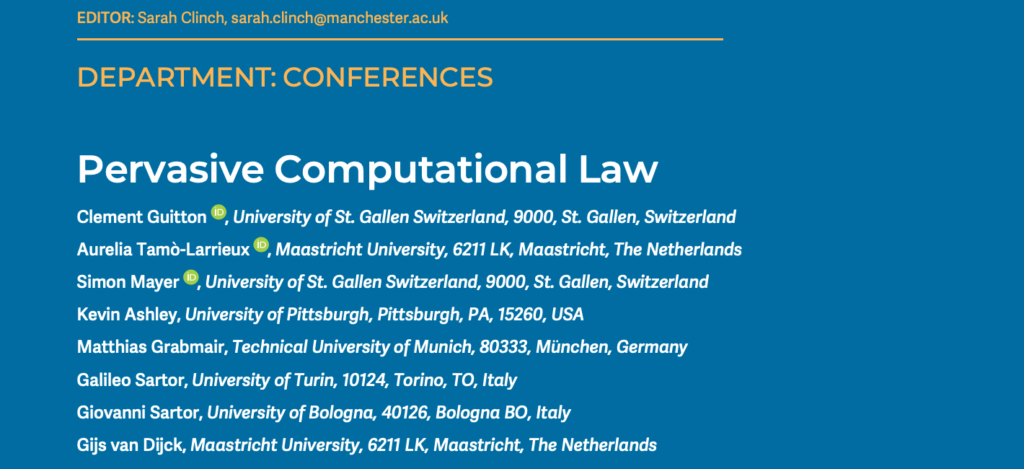New publication Aurelia Tamò-Larrieux & Gijs van Dijck
Two of our Digital Legal Lab members, Aurelia Tamò-Larrieux and Gijs van Dijck, have contributed to a recent publication regarding pervasive computational law.
The publication discusses the field of computational law, which aims to make legal processes more efficient and accessible through automation. It outlines the evolution of computational law in three waves: the first focused on modeling legal knowledge and logic, the second on creating legal ontologies for organizing information, and the third on using machine learning to process legal texts. The paper identifies five key challenges in the field: ambiguity, structural mismatches in legal documents, ensuring faithful representation, legal indeterminacy, and addressing classical logic inadequacy in legal reasoning.
The authors stress the importance of interdisciplinary collaboration between legal and computer science experts to tackle these challenges effectively. While certain aspects of the law can be automated, the paper emphasizes that many complexities, especially those involving open-texture in legal language, remain challenging to automate. It underscores the need for a comprehensive understanding of limitations and the sharing of insights across various fields, as the influence of computational law grows in both industry and policymaking.
To read the publication, access https://ieeexplore.ieee.org/stamp/stamp.jsp?arnumber=10273811
